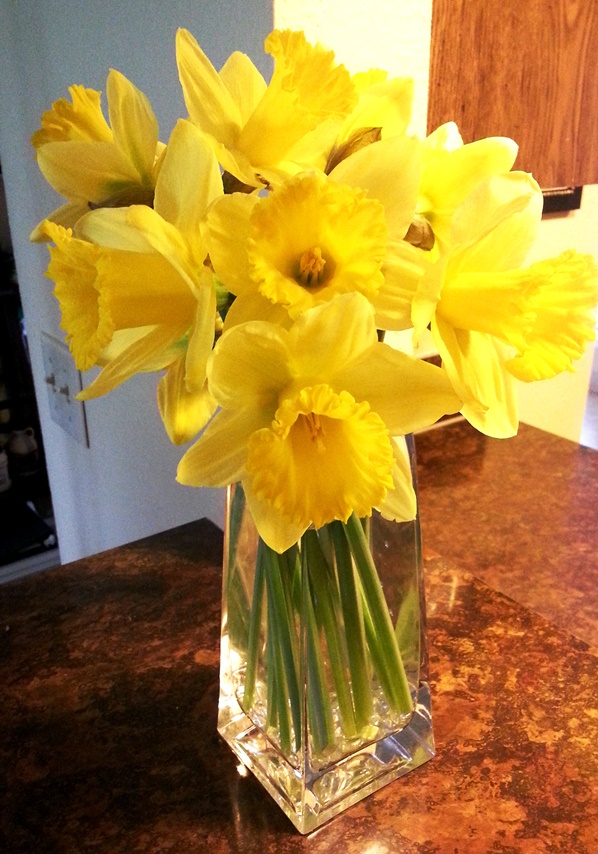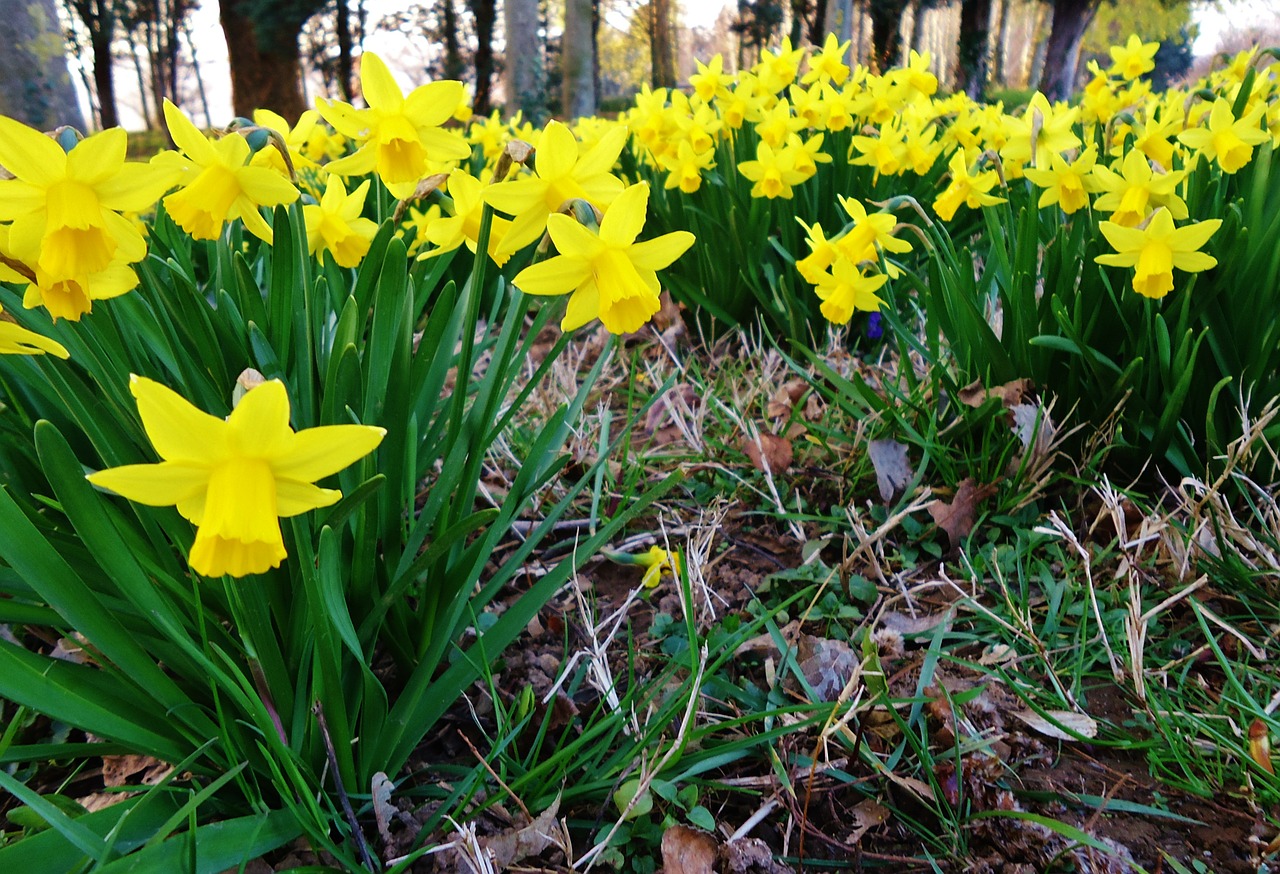I always enjoy the Mormon Tabernacle Choir broadcasts but today on Easter Sunday, they hit it out of the park. Their program ranged from the thundering Hallelujah Chorus from Christ on the Mount of Olives by Beethoven to an Irish tune, The King of Love My Shepherd Is, arranged by Conductor Mack Wilberg.
But it was the Spoken Word that expressed my thoughts most closely. Here’s an excerpt:
It’s been said that God rewrites the book of Genesis every spring.
“In the beginning” takes on special meaning each year
as we witness the renewed life, the rebirth, and the new beginnings
that seem to be built in to earth’s cycle of seasons.
It’s as if nature itself is trying to tell us that whatever we are going through,
things can change—things can get better.
No matter how long the winter, spring is sure to follow.
In that spirit, a poet once observed:
“I wonder if the Daffodil
Shrinks from the touch of frost,
And when her veins grow stiff and still
She dreams that life is lost?
Ah, if she does, how sweet a thing
Her resurrection day in spring!” *
That is the hope of this season. It is the assurance
that nothing is ever permanently lost, that no one is forever gone.
Indeed, heartbreak, discouragement—even death itself is not final,
as long as we have hope in that “resurrection day in spring.”
The words “In the beginning” bring to mind the decades-old debate over Creationism vs Evolution. In my thinking lately, a common theme has emerged:
Is life random or orderly?
It might be easier to sort out our ideas if we think about what follows from these two possibilities?
- As I understand it, the essence of the Theory of Evolution is that all life evolved randomly. It that is true, then we can do whatever makes us happy now. We can be random. The only order is force, dominance, and “the survival of the fittest.” Does this produce true happiness? Or a lot of anxiety in an environment of bullies and victims?
- What answers do the evolutionists offer for the dilemma of mortality and the certainty of the grave? Certainly no comfort, no promise of an afterlife – only the cold ground and an end to consciousness and progression.
- With this bleak picture, why do so many people eagerly, even vehemently, embrace this belief? Could it be that they don’t want a leader that spoils their fun with strict rules?
But consider the ramifications of an orderly, created universe:
- Creationism or Intelligent Design says that the universe and all life was intentionally created and orderly in its operation. If the origin of life is indeed the random combining of elements with increasing complexity, why is the universe so orderly in its operation? Many scientists point out that life could not happen if any one of thousands of variables were off even slightly.
- The rules of Creation are the rules that support life. While we do have free choice in this life – to choose life or death, productivity or dissolution – we cannot choose the consequences of those choices.
- Could there be value in a God who is loving, perfect, and all powerful? Are we such competent beings that we need no help from someone wiser? Hasn’t history shown that we don’t do well left to our own devices, that the greatest civilizations are built on physical and moral order?
- While real sacrifices of immediate pleasure are required, order brings stability, peace, and true prosperity in this life, not just in qualifying us for a place in Heaven.
- Finally, it’s only in the Judeo-Christian religion that we have a real promise of resurrection from certain death and the hope of continuing our life’s journey after death, through the Atonement of Jesus Christ. Just as we prepare in high school to get into a good college and have a successful career, what we do now affects our experience after this life. Most of us understand that some sacrifice to safeguard our mortal future is necessary. Why wouldn’t that logic be even more true to safeguard our eternal future?
One system is Play Now, Pay Later (and pay big!). The other system is Pay Now, Play Later (and play gloriously!). But we don’t have to guess which is right. We can simply ask God to show us the true path through mortality into eternity. And it isn’t all or nothing – the Christian path is one of great joy. For my yoke is easy, and my burden is light (Matthew 11:30).
So my Easter message isn’t the usual one about bunnies, new beginnings, or even daffodils, but about life and death. I invite all to come to the throne of grace, to feel God’s love and promises for themselves. It’s my testimony that your prayer will be answered and that all of life’s sacrifices will be worth it.
In the end, it’s all good. If it’s not good, it’s not the end! (Anon)
* from Emma C. Dowd, “Daffodil and Crocus,” in Country Life in America, Apr. 1902, p. 218

